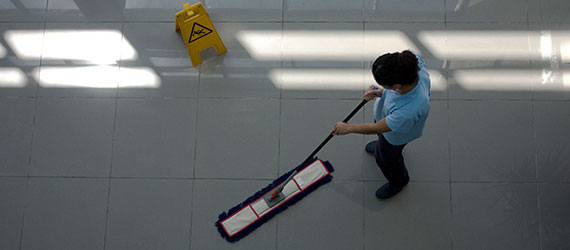Hospitals and other healthcare settings contain many areas where bacteria and other micro-organisms need to be controlled. The importance of that control is increased because they bring together people with infectious diseases (who are potential sources of infection) and vulnerable people whose illness, therapy, surgical treatment, age or physical condition reduces their immunity and makes them highly susceptible to infection.

Many micro-organisms that would be harmless to healthy adults can be very dangerous, even life-threatening, to such vulnerable groups. A good hygiene regime to prevent cross-infection, or self-infection via open wounds, is of the utmost importance.
Responsibility for the hygiene regime, including an appropriate cleaning and disinfection policy, is normally allocated to an Infection Control Team or Committee, containing microbiologists, pharmacists, doctors and infection control nurses (hospital hygienist). They may be sufficiently experienced to produce their own policy or may adopt the recommendations of Government Health Departments, Professional Societies or other official reference centres.
Hygiene in specific medical and treatment areas such as operating theatres, for medical equipment and in response to medical events such as specific infections or spillages of body fluids, involves closely defined practice and procedure.
The table here sets out an example of how different techniques, cleaning and disinfection methods are typically matched to different needs, classified according to a broad assessment of risk. The choice of the specific method of disinfection depends in each case on a number of factors, which include the nature of the area or material to be treated, the type of organisms present, which may or may not be known, the time available for processing, the susceptibility of the patient and any risks to staff.
In other parts of hospitals and other healthcare institutions, hygiene needs and processes closely parallel those in non-medical settings. See for example: